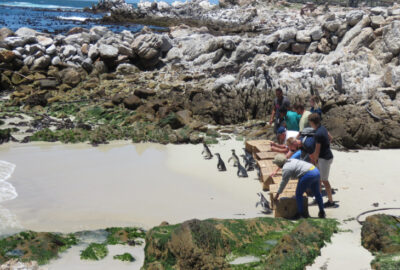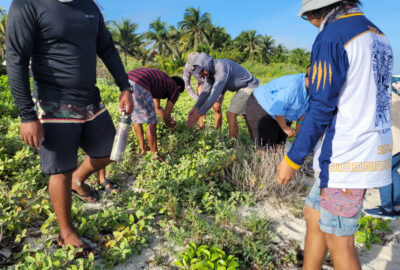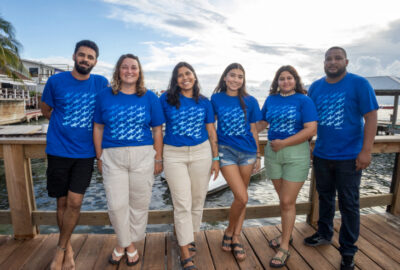Take-home Experiences and Insights: The Beahrs Environmental Leadership Program
By New England Aquarium on Thursday, October 17, 2024

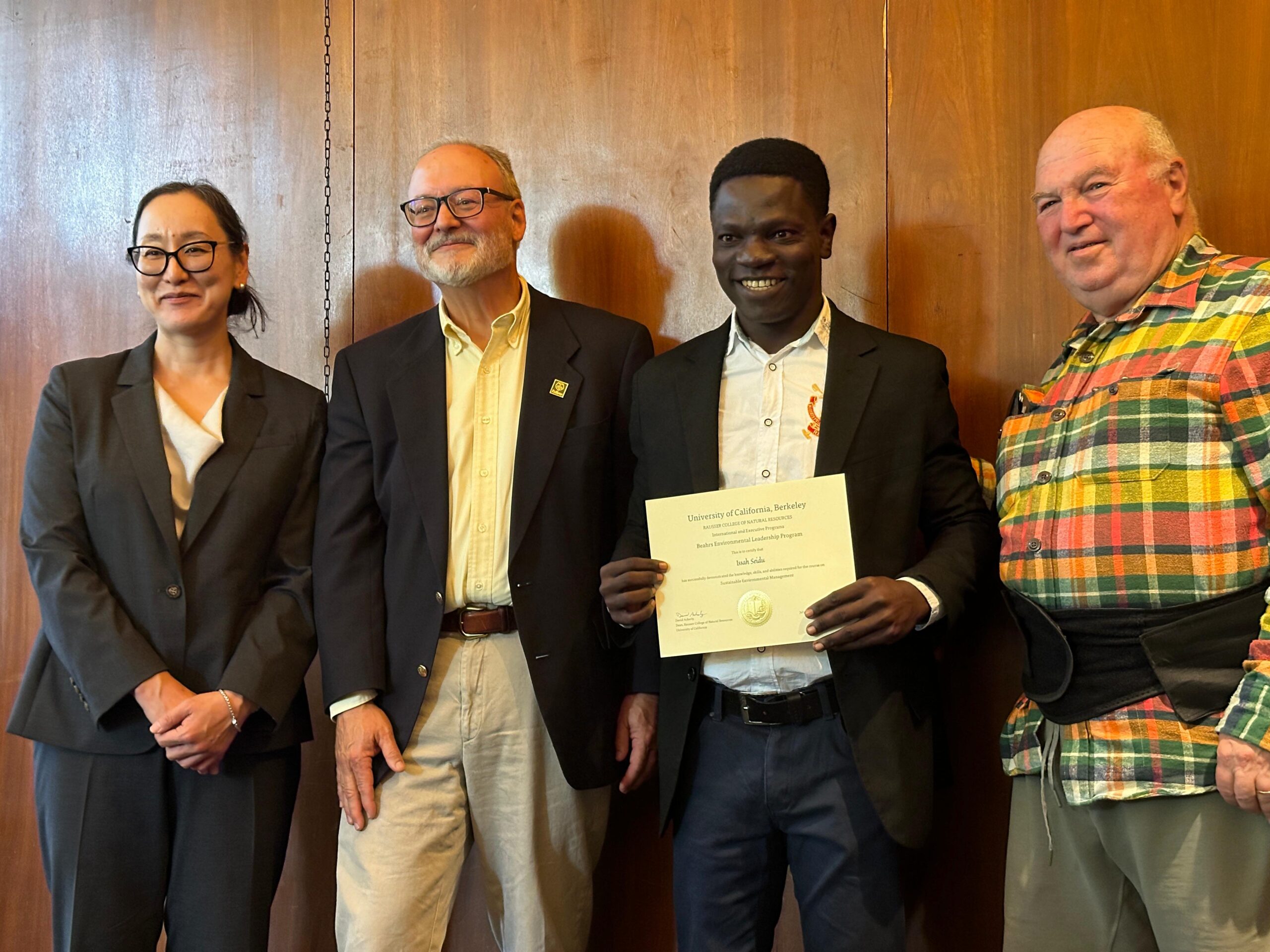
This post is one of a series on projects supported by the New England Aquarium’s Marine Conservation Action Fund (MCAF). Through MCAF, the Aquarium supports researchers, conservationists, and grassroots organizations around the world as they work to address the most challenging problems facing the ocean.
By Issah Seidu
With all hope seemingly lost for securing funding to support my participation in the Beahrs Environmental Leadership Program at the University of California (UC), I was overjoyed on the evening of May 12, 2024, when I received an email from the Marine Conservation Action Fund (MCAF) at the New England Aquarium offering full financial support. The grant covered the course fees, round-trip airfare, and accommodation. With renewed excitement, I began preparing for the program and joined a two-day online session that introduced the course structure, assignments, and participants. This online introduction gave us valuable insights into each participant’s expertise and background, and allowed us to start building connections.
The leadership program at UC was scheduled from July 25 to August 8, 2024. However, I arrived in the US from Ghana on July 18 to attend another important event aimed at fostering collaboration with professors at Kentucky State University (KSU). Thanks to additional support from MCAF, I was able to spend six days at KSU, networking and learning firsthand about their projects on aquaculture and vegetable farming. I also established strong relationships with professors who have committed to mentoring some of my students at Kwame Nkrumah University of Science and Technology in the future as part of their master’s programs.
As the days passed, my excitement grew in anticipation of the leadership program. I couldn’t wait to explore California and experience the iconic cities of San Francisco, Berkeley, and Sacramento, which I had heard so much about. I arrived at San Francisco Airport at 11 p.m. on July 24 and took a cab to UC Berkeley. While in the taxi, I tried to take in the city’s beauty, though my view was limited by the darkness.
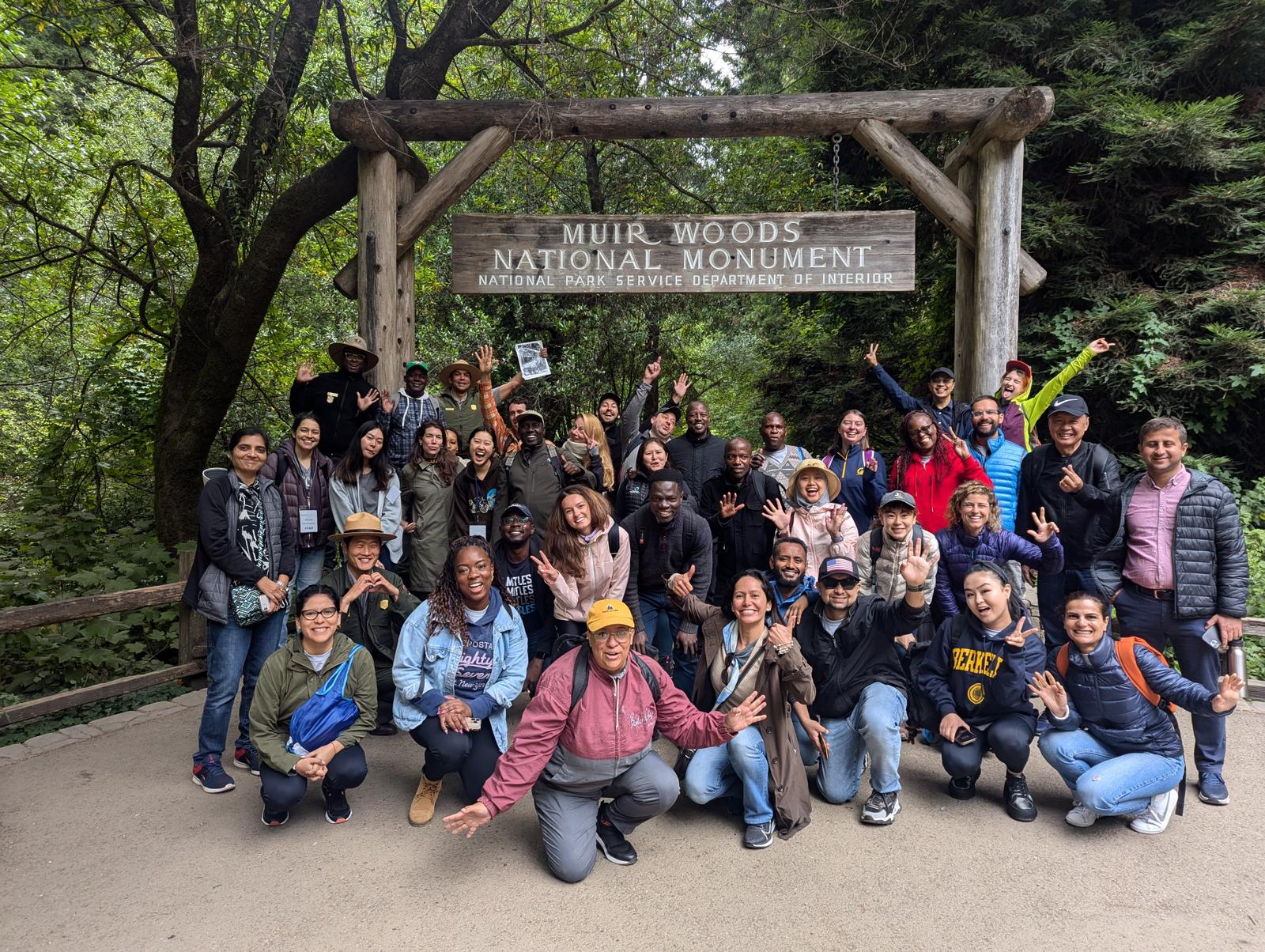
On July 25, at exactly 8:45 a.m., we were guided by a UC staff member to the venue of the leadership program. The day began with a welcome address and orientation led by Mio Katayama Owens, the assistant dean of International and Executive Programs at the Rausser College of Natural Resources. She provided an overview of the logistics, assignments, and expectations for the course. Shortly after, the real learning began, with three sessions, starting with “Bioeconomy and Sustainable Development,” my favorite of the day. The following days were filled with sessions on conservation strategies, climate change, marketing, behavior, and human-centered design, among others.
A major highlight of the program was the focus on collaborative leadership and conflict resolution, which spanned four days. Susan Carpenter, a highly experienced coach who has taught the subject for nearly two decades, led the sessions. She introduced us to various concepts, tools, and approaches to leadership, teaching us how to guide teams in making critical decisions and achieving success in projects. We also explored personality temperaments, effective communication, and the use of facilitation, negotiation, and collaborative problem-solving to address organizational challenges.
One of my most memorable experiences was when my group in the Marketing course chose to focus on my organization, AquaLife Conservancy, for our fundraising project. We were tasked with developing a strategy to raise funds for a payment-for-environmental-services program. I led the group as we developed a fundraising model to support AquaLife’s alternative livelihood programs, including mushroom farming, snail rearing, and soap making, aimed at reducing pressure on sharks, rays, and other marine megafauna. It was a privilege to present our work to the class, and it was well-received by my peers.
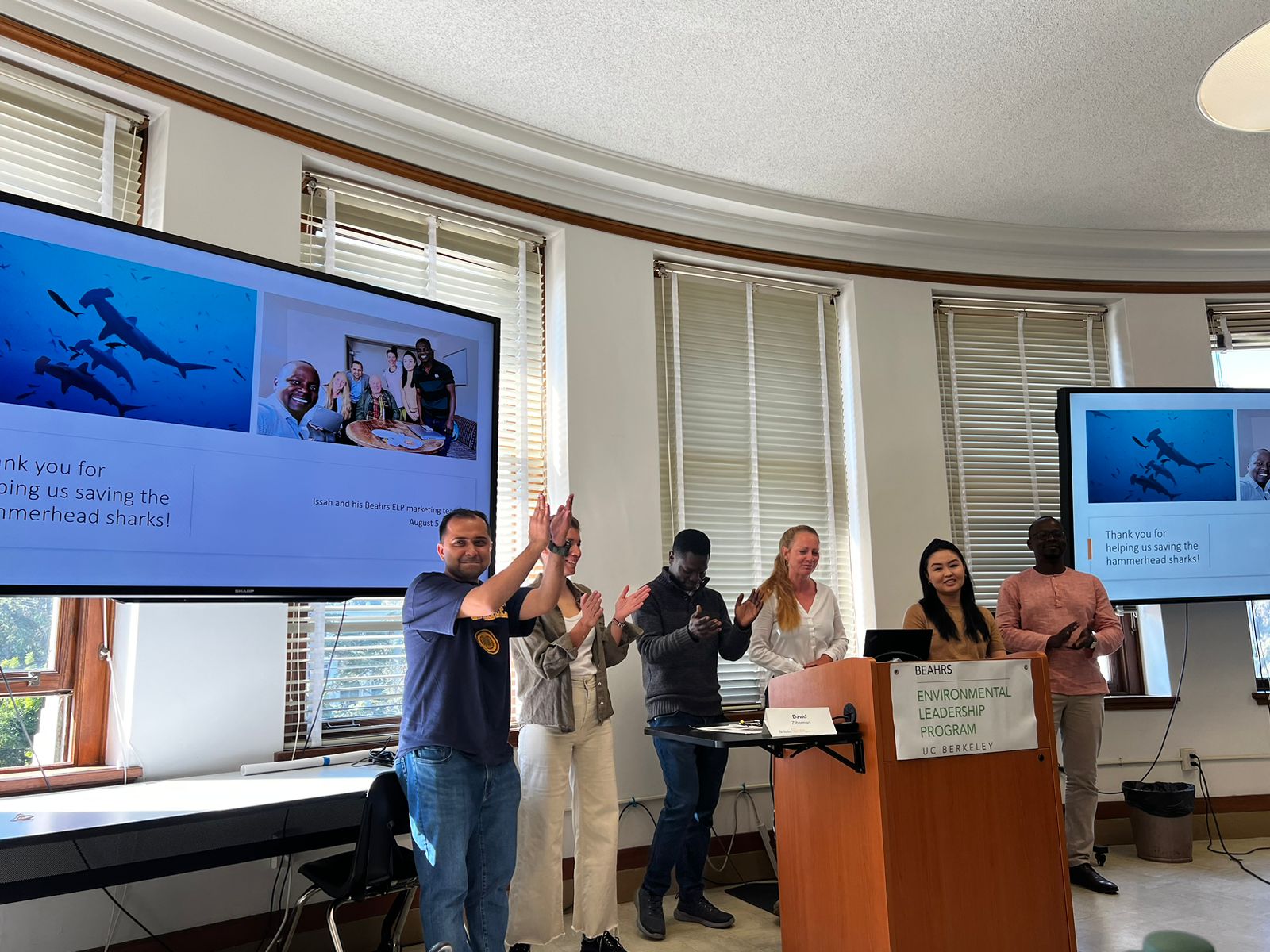
Additionally, the participants were grouped into various thematic projects that integrated aspects of the course into our own work. I joined the Ocean and Aquatic Ecosystems group, which included six members from six different countries. Our project focused on the blue economy, emphasizing the conservation and sustainable management of coral reefs and coastal marine habitats while improving the resilience of local communities. We used the Resilience of Indian Ocean Coastal Zones (RECOS) Project in Madagascar as a model, and through this experience, I gained valuable insights into the environmental threats facing marine protected areas and potential solutions for overcoming these challenges.
I must say that participating in the Beahrs Environmental Leadership Program has been a transformative experience and an invaluable platform for capacity building, where I have gained essential knowledge and skills to tackle various challenges in my organizational and conservation work.

